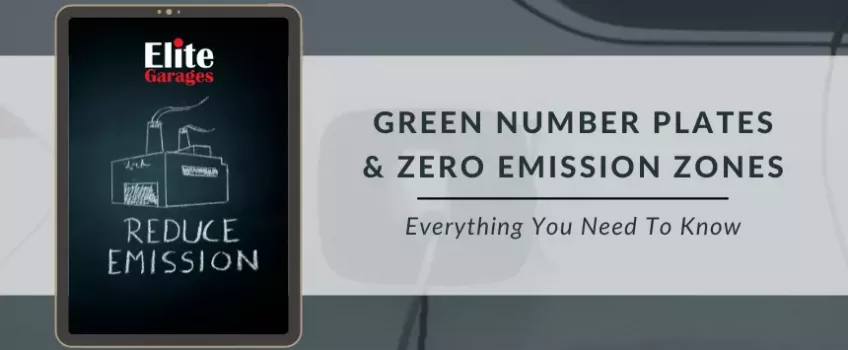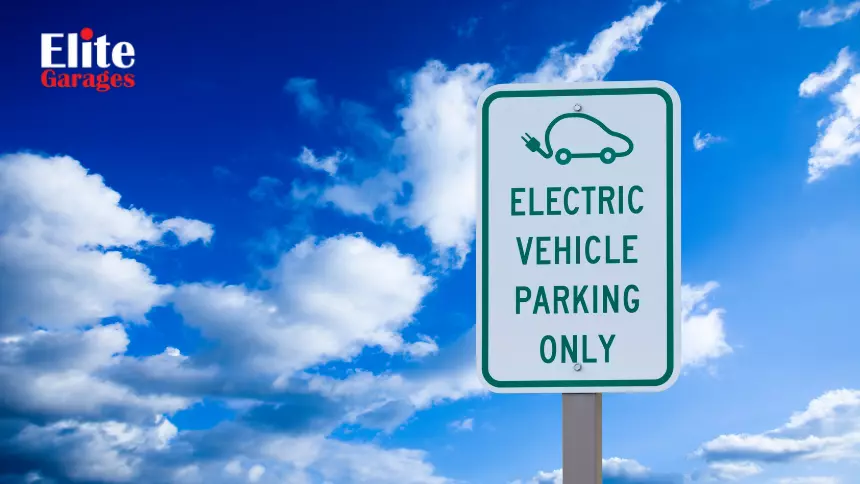
Green Number Plates And EV Zones Explained
The UK is well on track to meet the ambitious zero-emissions goal of only selling new electric vehicles from 2035. Part of the government’s initiative is green number plates which were first introduced in December 2020. Whilst it’s not compulsory, all newly registered and existing electric vehicle owners can show their support and participate in this scheme by registering for green registration plates. The question is whether it will help encourage people to trade in their petrol, diesel or hybrid cars for an EV.
Keeping Up With The Number Plate System
The number plate system is always changing but the current one was introduced in 2001. It changes every six months (March and September) and consists of the following:
- TWO letters which refer to the region in the country where the car was first registered
- TWO numbers referred to as the ‘age identifier’ indicate when the car was first registered
- THREE letters which are chosen at random
What Do Green Number Plates Look Like?
Green number plates aren’t entirely green but they are distinguishable from regular registration plates by a green bar down the left-hand side. The rest of the number plates will remain white at the front and yellow at the rear. The green number plate scheme is only a small part of the UK government’s Road to Zero Strategy with petrol and diesel cars being phased out by 2030/2035.
What Are The Benefits Of Green Number Plates?
Besides helping the environment and promoting cleaner air in the UK, the green registration plates will help motorists as well. Some of the incentives to EV drivers include access to bus lanes, cheaper parking and free entry into zero-emissions zones. Considering the new plates are easily identifiable, local authorities can create new initiatives for EV owners as there could be many more in the future.
Gill Nowell, a representative of the Electric Vehicle Association (EVA), which offers a voice for electric vehicle drivers in England, believes the green number plates is a step in the right direction. She said that “green number plates are a good way to raise the profile of electric cars, and ‘normalise’ them in our society today”.
Which Cars Can Apply For Green Registration Plates?
Green number plates are only available to owners of battery-electric cars and not hybrids or plug-in hybrids (PHEV). All zero-emissions vehicles are eligible, including cars, vans, buses, motorcycles and hydrogen fuel cell cars.
The green registration plates are not mandatory on electric cars but manufacturers are fitting them on all new EVs. So, if you are buying a new electric car but don’t want green number plates, simply notify the car dealer before the car is registered.
How To Apply For A Green Number Plate?
The application process is pretty simple and similar to registering a normal number plate. You can apply at any registered number plate supplier and provide them with proof of your name, address and whether you have the right to use the registration mark.
If you own a battery-electric vehicle and registered as zero emissions you can buy a green number plate. But remember, only order plates from a registered supplier and make sure they perform all the legally required checks.
What Is A Zero Emission Zone?
With the UK’s deadline to ban the sale of any new diesel, petrol and hybrid cars in the not too distant future, cities across the UK are adopting zero-emission zones or clean air zones to help reduce pollution and improve the quality of life for residents.
Zero-emission zones or low emission zones (LEZs) are also referred to as clean air zones (CAZs) in England. These areas will charge or penalise vehicles for pollution based on their Euro emissions standard. Any vehicle with higher emissions is either unable to enter a zero-emission zone or pay an additional charge to enter.
Implementing these clean air zones will improve air quality, protect public health whilst supporting the transition to a low carbon future. According to the World Health Organisation, poor air quality leads to more than four million premature deaths every year and that transport is the biggest source of air pollution in the UK.
Will Green Number Plates Encourage A Switch To Electric Vehicles?
The success of the green number plate scheme will vary depending on the benefits drivers will get from using them. According to research from a Nissan poll, a third of motorists in the UK said they would be more willing to buy an EV because of green registration plates.
As good as this initiative may seem, not everyone feels it’s enough to encourage drivers to switch to electric vehicles. Karen Parry, Head Of Communications for the Society of Motor Manufacturers and Traders (SMMT) said it’s a great starting point but that stakeholders should be doing more.
“To encourage more people to make the switch, however, will require greater support, including long-term purchase incentives and significant investment in charging points nationwide, importantly beyond the strategic road network to give drivers confidence that they can recharge as easily as they refuel.”
Electric Vehicle Servicing At Elite Garages
Whilst we currently don’t service electric vehicles, our technicians are attending the necessary training to offer this in the future. Watch this space as we will keep you updated on our website, blog and social media. Until then, we provide quality, affordable standard and full services on all makes and models at centres across the UK.
Apart from vehicle services, we also do MOTs, tyres, wheel alignment, free vehicle safety checks and a host of other services. So, if you need a car battery, brakes, exhaust or a new clutch, get in touch with your nearest Elite branch. Our service centres also have same-day tyre fitment so be sure to reserve your tyres online.
About Us
Opening Times
Saturday : 8:30–4:00
Sunday : closed
More Information
Contact UsCustomer Information Pack
Check MOT Due Date
Free MOT reminder
Careers
Legal Information
Recent Posts
- Elite Garages Croydon Is Open for Car Servicing and MOTs in South London
- Elite Garages Poole Is Now Open for MOTs, Tyres and Car Servicing
- The Most Common Car Questions UK Drivers Ask, And What They Usually Mean
- Why Short Winter car Journeys Cause So Many Common Car Problems
- Why Car Problems Happen More Often in January (And What Drivers Miss)



